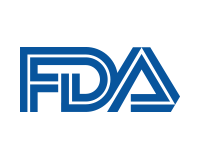United States Department of Health and Human Services

United States Food and Drug Administration: Publications
Date of this Version
2017
Document Type
Article
Citation
U.S. government works are not subject to copyright.
Abstract
Introduction: Changes to the U.S. smokeless tobacco landscape in recent years include a change to health warnings on packages, the implementation of bans in some stadiums, and the launch of a federal youth pre- vention campaign. It is unclear whether such changes have impacted consumer beliefs about smokeless tobacco. This study examines relative harm perceptions of smokeless tobacco compared to cigarettes among adults and assesses changes in smokeless tobacco harm perceptions over time.
Methods: We analyzed data from three cycles (2012, 2014, 2015) of the Health Information National Trends Survey (HINTS). Using 2015 data, we assessed bivariate associations between smokeless tobacco harm per- ceptions and tobacco use, beliefs, information seeking, and demographics. Using 2012, 2014, and 2015 data, we assessed whether smokeless tobacco harm perceptions changed over time within demographic groups using chi- square tests. We then used a weighted multinomial logistic regression to assess the association between smo- keless tobacco perceptions and survey year, adjusting for covariates.
Results: When asked whether smokeless tobacco products are less harmful than cigarettes, the majority of re- spondents across cycles said “no.” The percent of respondents who selected this response option decreased over time. Findings showed significant differences in relative harm perceptions of smokeless tobacco versus cigarettes for specific demographic subgroups. Among subgroups, these shifts did not occur with a discernible pattern. Conclusions: Understanding factors associated with perceptions of smokeless tobacco can inform tobacco control efforts. Additional monitoring of these trends may provide researchers with a deeper understanding of how and why smokeless tobacco harm perceptions change.
Included in
Dietetics and Clinical Nutrition Commons, Health and Medical Administration Commons, Health Services Administration Commons, Pharmaceutical Preparations Commons, Pharmacy Administration, Policy and Regulation Commons


Comments
Addictive Behaviors 77 (2018) 7–15
http://dx.doi.org/10.1016/j.addbeh.2017.09.002